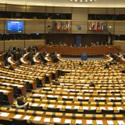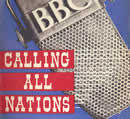Hot topics click link for more
In Reaching Out
 Big media markets have many advantages. More money, obviously, is one. More watchful eyes, arguably, is another. Smaller media markets, where everybody knows everybody, become consumed by the bitterness of scale. Criticism is very unwelcome.
Big media markets have many advantages. More money, obviously, is one. More watchful eyes, arguably, is another. Smaller media markets, where everybody knows everybody, become consumed by the bitterness of scale. Criticism is very unwelcome.
Nobody doubts the soft power value of international media. Words and pictures can frame any message. Soft power effectiveness depends on credibility far more than technology. Desired outcomes, however, must be clear.
Imagine the wind lifting the roof from your house, water rushing in the windows, the ground shaking or fire inching closer. In highly developed regions systems are in place to provide timely and accurate information. But natural disasters know no boundaries. And where people are most vulnerable the most reliable information sources are the best.
Developing a strong media sector in transitional regions seizes the opportunities of good business, employment and hot technology. And everybody likes good news. Media people need to cooperate, say government officials, and keep everything pretty. Jail is the obvious option.
Since Croatia’s accession to European Union (EU) membership this summer, nations with aspirations to join the European club have a long wait. The EU hasn’t forgotten them; it’s the arduous process. For six countries, all more or less adjacent to Europe and all formerly in the Soviet orbit, the EU has organized a special outreach program to cement ties or at least to build rapport.
Like the weather, everybody talks about change. Media organizations are particularly susceptible to the idea. It makes for great meetings. After that, reality is very stormy.
More and more, elections are being monitored by international organizations for more than polling practices. Campaigns and media coverage is under scrutiny. As new media technology takes an increasingly important role in political campaigns election observers must look beyond traditional messages.
 Calls to replace old media structures resound, far and wide, with popular surges toward democracy. The Arab Spring has been but the latest. The idealism of newly empowered citizens quite naturally seeks voice, some of which was found in new media and quickly. Traditional media is more difficult to turn.
Calls to replace old media structures resound, far and wide, with popular surges toward democracy. The Arab Spring has been but the latest. The idealism of newly empowered citizens quite naturally seeks voice, some of which was found in new media and quickly. Traditional media is more difficult to turn.
Local media is often held as essential to strong community dynamics, a multitude of voices preferable to a few outlets offered by either the State or big private owners. The dilemma, less figured, is pure economics. Local media is expensive and a lot of local media is unsustainable, forcing difficult, often ugly decisions on media workers and owners. A solution, like the money, is hard to find.
There are places where media carries the weight of life and survival, far more than celebrity gossip and playing the hits. Those who pursue this mission see, hear and feel the difference. It’s not something that can be valued simply in terms of money. That’s what makes it so difficult.
Media development in conflict and post-conflict zones requires a certain expertise. A talent for adaptation is essential. Being there is important, too. And development agencies and NGOs are always looking for experience.
Mass communications is commonly viewed as indispensable, a critical institution. Media facilitates that critical communications by providing language, narrative and passion. But media development is uneven, more so in times of dismal economics and accompanying social instability.
Systemic change offers opportunities for new thinking about a nation’s media. Wholesale upheavals, from “flower” and "color" revolutions to “springtime” protests and, even, wars, would seem to create the right conditions. And, too, the digital revolution should open the media space. Reality, though, is a laggard.
There are many survival rules for media executives. One is never embarrass the boss or his wife. Another, more important, is never upstage the boss. There are no cultural exceptions.
International broadcasting remains an important element of soft power diplomacy. Nations want to tell their story to peoples around the world. Those goals remain the same even as the means of telling those stories has changed dramatically.
National leaders can be rather prickly when it comes to relations with media organizations and journalists. Some just don’t take criticism very well. Others seem bent on upsetting everybody.
 Blights on the media landscape are oft noted, particularly at the fringes. The media is too powerful, except where it isn’t. It’s too rich, except where it isn’t. It has the best of values, except when it doesn’t. On this everybody seems to agree, except when they can’t.
Blights on the media landscape are oft noted, particularly at the fringes. The media is too powerful, except where it isn’t. It’s too rich, except where it isn’t. It has the best of values, except when it doesn’t. On this everybody seems to agree, except when they can’t.
Media development in post-conflict zones isn’t for the faint of heart. Each region has their own challenges and no single strategy guarantees success. Strong, persistent actors have an edge.
Civil strife is never easy on the eyes. Tension begets hatred, which begets violence, supporters of all sides participating. Media is, then, tangled in the conflict; hostile, rough and ugly.
Everything about the process and delivery of news changed with the rise of the Web and mobile media. Something, too, changed with the way news is used. Floating between these two fundamental changes is either anarchy or democracy.
When the UK government announced last September it would end its £272 million annual grant for BBC World Service radio we ran the headline, “What Becomes of BBC World Radio” and four months later we now have the answer – the closing of five language services and savage cuts at the remaining 26. But in today’s media world, does it matter?
The radio medium has shown through its 100-year history an incredible power. That power has delighted, informed and entertained; a testament to its enduring strength. Radio’s power, too, has been a force for evil and madness.
Financial investors are genetically averse to high risk. Media in developing regions rarely gets the attention of fund managers. That, too, is changing.
The digital age has spawned media models galore. There are many to choose from. There’s the internet free-for-all model. There’s Mr. Murdoch’s pay-for-everything model. There’s also the Chinese model.
 As part of the UK government’s massive spending cuts announced Wednesday the BBC license fee of £145.50 (€160, $220) is going to remain frozen for the next six years, but the public broadcaster is losing its Foreign Office grant of some £272 million (€297 million, $412 million) that annually funds its World Service radio.
As part of the UK government’s massive spending cuts announced Wednesday the BBC license fee of £145.50 (€160, $220) is going to remain frozen for the next six years, but the public broadcaster is losing its Foreign Office grant of some £272 million (€297 million, $412 million) that annually funds its World Service radio.
International broadcasting reaches into dark places. Metrics are obscure. Missions blur. And it’s hard to graft an answer to the head of a pin. The fight for funding requires tenacity.
Media has long been a priority of international organizations in post-conflict development. After security information is considered a basic necessity. Most often these are long-term efforts and successes are delicate.
Social media platform Facebook gets considerable attention in media circles. It’s popular, very popular, as more traditional media platforms appear to suffer. That ‘digital dividend’ just keeps on giving.
After nearly two decades of international supervision, the countries spun-off from what was once known as Yugoslavia have made remarkable progress in sustainable media development. Pressures remain and the resulting tensions create more pressures. The investment has been considerable and now the bills are due.
 International broadcasting reached a pinnacle during the post-Second World War years. The Cold War gave birth to a competitive sphere where government funded radio broadcasters kept news listeners fixed to their radios. By the mid 1980’s the dial was filled. A decade later, everything had changed.
International broadcasting reached a pinnacle during the post-Second World War years. The Cold War gave birth to a competitive sphere where government funded radio broadcasters kept news listeners fixed to their radios. By the mid 1980’s the dial was filled. A decade later, everything had changed.
Establishing democratic institutions and the rule of law where ethnic wars once raged in South East Europe has been the focus of international organizations and experts for two decades. Free press and independent public media have been seen as essential for bringing stability to this corner of Europe. The results of these efforts have been disappointing as local tribes, clans and factions quickly revert to old ways.
The European Union is again in expansion mode, reluctantly. After the 2004-2006 leap that added 12 new Member States, Southeast Europe - the Balkans - are the next logical step. But, as the famous poet said, “there are miles to go.”
Every government with a story to tell wants to tell it on television. Internet services of state-run news agencies can put out all the press releases and official statements. Nothing, however, beats a television channel for a foreign audience.
That all governments seek to control all media is the first rule of media politics. More authoritarian governments use extreme measures, to the complaints of media watchers. Dictators pay no attention.
Desperate places share a common plight. They are always poor and always under threat. Basic information without constraint or bias is, for people trying to survive, essential. Media development NGOs are facing the task with fewer resources.
International broadcasters are either warmly welcomed or shunned entirely by host governments. When most listeners and viewers use radios and TVs of the terrestrial kind that’s the place broadcasters want to be. But politics, nationalism and greed are making those frequencies off limits to the people with a message from afar.
 Frankfurter Allgemeine Zeitung (FAZ) Africa correspondent Thomas Scheen was released by the pro-government Maï Maï militia, confirmed by FAZ publisher Berthold Kohler (November 8). Scheen, his interpreter and driver have been in the custody of the United Nations Peace keeping force MONUC since Friday morning (November 7).
Frankfurter Allgemeine Zeitung (FAZ) Africa correspondent Thomas Scheen was released by the pro-government Maï Maï militia, confirmed by FAZ publisher Berthold Kohler (November 8). Scheen, his interpreter and driver have been in the custody of the United Nations Peace keeping force MONUC since Friday morning (November 7).
Three countries are on the official list for EU enlargement. Five more are considered potential candidates. EU Enlargement Commissioner Olli Rehn reported this week on the progress… or lack thereof. Media issues loom large.
 EU Expansion Commissioner Olli Rehn declared 2009 to be the year of the Balkans last week, a positive signal for Croatia. Two days later an important Croatian newspaper publisher had an unfortunate meeting with a car bomb. Croatia’s Prime Minister vows not to let his country “become another Beirut.”
EU Expansion Commissioner Olli Rehn declared 2009 to be the year of the Balkans last week, a positive signal for Croatia. Two days later an important Croatian newspaper publisher had an unfortunate meeting with a car bomb. Croatia’s Prime Minister vows not to let his country “become another Beirut.”
And it’s a bit racy, quite different from the Western perception of Arabic media. Oh sure, there’s a line not to be crossed and the Syrian government listens in. But tuning in is quite cool.

Belarus, Uzbekistan and Kyrgyzstan – all on Russia’s edge – are pushing media repression to new lows. With all broadcasting and most print media firmly under State control, the Web is the current target. Dictators on Russia’s borders perplex even Russian media.
Iran’s state broadcasting institution hosted again its International Radio Festival. The Asia Pacific Broadcasting Union joined the event this year co-hosting the International Radio Forum. The BBC’s Director of Global News Richard Sambrook gave the keynote. Only one Iranian official walked out.
The Hezbollah faction fought its way across Lebanon’s capital Beirut with more death and destruction in its wake. One target was the pro-government media center Future TV, now in ruins. The militias now control through force of arms much of what moves. And its own media empire is spreading the news.
A day earlier this would have been a story about a television station, controversial in itself, changing owners. A Russian billionaire or two thrown in and the story gets a bit more interesting. But when the stations’ principal owner ‘suspiciously’ drops dead, this story took yet a different turn. Oh, add Rupert Murdoch to the mix.
Turning government owned enterprises into private companies is considered a positive step, even more so when governments divest interest in State owned media. A lack of transparency in privatization, brought to light by NGOs, has a way of diminishing any positive result. Nowhere is this more apparent than the Balkans.
Burma’s military rulers engaged a new front in their war on media “liars attempting to destroy the nation.” Today’s target is the dreaded satellite dish. Without warning, and no official announcement, satellite dish owners are now expected to pay about three times the average annual wage for a license to watch news, sports and soap operas from the outside.
Imedi TV suspended broadcasting ‘temporarily’ (Wednesday, December 26) according to a spokesperson, reported by website Civil Georgia. The station has been a political football in the contest between the government of Georgian President Mikhail Saakashvili and billionaire opposition leader Badri Patarkatsishvili. In early November the channel was forcibly closed by authorities and direct management assumed by News Corporation (News Corp), its minority shareholder.

Yes, the basic garden variety – or rooftop – satellite dish is one ugly sight. In a recent beautification movement Turkmenistan’s president ordered them removed. Media watchers question whether he finds the dishes so ugly or the programs they receive.
The multi-national project to beam independent television into Belarus is planned to hit the airwaves on International Human Rights Day. Belsat will be for Belarusians by Belarusians, say the producers. And they’ll throw in Ally McBeal, too.
Politicians moan continually about their press coverage. Bad news reflects badly. Mogadishu mayor Mohamed Dheere told broadcasters and publishers to stop the bad news or else.
 Two days before Georgians by the tens of thousands took to the streets protesting their government, News Corp executive vice president Marty Pompadur told a press conference in the Georgia capital Tbilisi that the company has taken over management of Imedi TV and radio.
Two days before Georgians by the tens of thousands took to the streets protesting their government, News Corp executive vice president Marty Pompadur told a press conference in the Georgia capital Tbilisi that the company has taken over management of Imedi TV and radio.
followup (1); comments(0)
 Immediately after the 1995 Dayton Peace Accords ending military and para-military action in Bosnia and Herzegovina Europe and the US rushed in the media specialists. ‘Hate radio’ may not have been invented in Bosnia but through years of conflict it flourished and, against all best efforts, pieces remain today. The international community’s intention was to use media for the good of that devastated civil society. With that end in mind, but hardly in sight, money poured in for equipment, from transmitters to printing presses, and for training.
Immediately after the 1995 Dayton Peace Accords ending military and para-military action in Bosnia and Herzegovina Europe and the US rushed in the media specialists. ‘Hate radio’ may not have been invented in Bosnia but through years of conflict it flourished and, against all best efforts, pieces remain today. The international community’s intention was to use media for the good of that devastated civil society. With that end in mind, but hardly in sight, money poured in for equipment, from transmitters to printing presses, and for training.
Media advertising in Russia, Ukraine, Moldova, Belarus and Romania will experience triple digit growth over the next three years. That may not exactly be the reason a Russian broadcaster wants to acquire the aging Soviet-era transmission facility in Transdniestra.
 A decade ago European institutions saw Croatia’s media sector as hopeless, with little or no possibility developing to recognized standards. The new century brought considerable donor involvement in media but only modest attention from major broadcasters and publishers. The European Union declared Croatia last November a functioning market economy, another step toward EU accession and signal that the ‘post-donor’ era had begun.
A decade ago European institutions saw Croatia’s media sector as hopeless, with little or no possibility developing to recognized standards. The new century brought considerable donor involvement in media but only modest attention from major broadcasters and publishers. The European Union declared Croatia last November a functioning market economy, another step toward EU accession and signal that the ‘post-donor’ era had begun.

The media situation in Serbia hasn’t changed much. “We are seven years in this (transition) period in Serbia and we can say that we are half way through,” said OSCE Head of Mission in Serbia Hans Ola Urstad in a recent interview. “A lot more has to be done and it will be done,”

Radio Farda reporter Parnaz Azima left Iran after an extended and unplanned eight month stay. Iran’s official media said she was planning a ‘velvet revolution.’ Give me a break! She was visiting her mother.
Cameroon’s Communications Ministry recently issued the nation’s first broadcast licenses. The law allowing privately owned radio and television stations was enacted 27 years ago. There seems to be no hurry.
At sunrise Saturday morning Radio HornAfrik talk show host Mahad Ahed Elmi took four bullets to the head as he reached his office door. Hours later station director Ali Iman Sharmarke, returning from Elmi’s funeral, died when his automobile struck a landmine. Friday government troops raided Radio Shabelle, arresting staff members. Both stations – broadcasters known for independent reporting – have continued to operate despite warnings and threats from disparate bands of warring factions.
 Foreign-originated broadcasts and foreign media support groups are losing their welcome. Is somebody afraid of being bitten? Writing new laws to hamper, discourage and foil foreign-originated broadcasts from entering their ether-space is necessary, they say, for technical reasons
Foreign-originated broadcasts and foreign media support groups are losing their welcome. Is somebody afraid of being bitten? Writing new laws to hamper, discourage and foil foreign-originated broadcasts from entering their ether-space is necessary, they say, for technical reasons
Three times in two weeks women working in journalism in the Middle East were reported murdered. The killings are a gruesome reminder that for the many and significant steps forward for journalism in the region; it remains in the grip of cultural antiquities and fear.
The World Association of Newspapers (WAN) told South African President Thabo Mbeki, officials of the African Union, foreign ambassadors and nearly 400 African newspaper professionals from 43 countries that if Africa had more press freedom that in itself would help stamp out the rampant 'corruption, famine, poverty, violent conflict, disease and lack of education -- afflictions of which African people's have much more than their fair share.' Mbeki basically agreed but also chided the world’s media for their lack of commitment in covering Africa for the rest of the world.
 “Media freedom in Africa is held captive both by the state and by the market," according to Zambian media analyst Fackson Banda, speaking at a press freedom in Africa roundtable at the WAN convention in Cape Town Sunday.
“Media freedom in Africa is held captive both by the state and by the market," according to Zambian media analyst Fackson Banda, speaking at a press freedom in Africa roundtable at the WAN convention in Cape Town Sunday.
Generally welcomed Friday was the video of BBC reporter Alan Johnston in captivity. Most sources and experts agree that negotiations for his freedom remain difficult.
It was supposed to be something of a celebration: the launch of Dakar radio station Premiere FM. Gendarmes appeared and authorities asked owner Madiambal Diagne to shut down signal tests already in progress.
Saying that negotiations to free kidnapped BBC Gaza reporter Alan Johnston have reached a “sensitive” stage, Palestinian Prime Minister Ismail Haniyeh wants the world to know that he’s got the message.
Serbia’s Supreme Court rejected a lawsuit by RTL against the media regulator Republic Broadcasting Agency (RBA), according to B92.
Every moment is a high-stakes poker game in the Middle East. News reporting is no longer about observation. Reporters are now bargaining chips.
"Journalists must never become victims of their own profession,"
Radio broadcasting’s long, distinguished tradition as a creative force in conflict zones turns a new chapter as an English language FM station based in Ramallah, Palestine takes to the air.
 A country’s “best” radio station is taken off the air. The West protests. The government shrugs. The story repeats.
A country’s “best” radio station is taken off the air. The West protests. The government shrugs. The story repeats.
 After smoldering for weeks, the Azeri government finally acted on its displeasure with television and radio broadcaster ANS. News accounts show a revolting picture of police surrounding the stations’ as authorities moved in to shut them down.
After smoldering for weeks, the Azeri government finally acted on its displeasure with television and radio broadcaster ANS. News accounts show a revolting picture of police surrounding the stations’ as authorities moved in to shut them down.
 Just less than 90 days after being arrested by Turkmen authorities, the Radio Free Europe/Radio Liberty (RFE/RL) free-lance reporter died in prison. She had been convicted at a trial lasting 10 minutes and sentenced to serve six years, effectively a life-time. She was 58 years old.
Just less than 90 days after being arrested by Turkmen authorities, the Radio Free Europe/Radio Liberty (RFE/RL) free-lance reporter died in prison. She had been convicted at a trial lasting 10 minutes and sentenced to serve six years, effectively a life-time. She was 58 years old.
 Al Aqariya Group – a publisher and television operator for the Arab real estate market – took to the satellite airwaves with a new channel aimed at raising awareness – and funds – for Lebanon’s reconstruction.
Al Aqariya Group – a publisher and television operator for the Arab real estate market – took to the satellite airwaves with a new channel aimed at raising awareness – and funds – for Lebanon’s reconstruction.
The “Never Give Up” award goes to Armenian broadcaster A1+. Four years after being tossed off the air, they keep trying. And the government keeps denying.
When times are tough, the clever get creative. Times are certainly tough for independent media in transitional economies. Marking World Press Freedom Day, the Media Development Loan Fund (MDLF) and Swiss partners launched a clever investment instrument designed to support independent press in developing countries.
Less than a week after the Serbian Broadcasting Authority announced the winners of national TV and radio licenses, BK TV – one of the losers – was shut down by police
The Serbian Republic Broadcasting Agency (PPA) reshuffled national television and radio allocations, awarding most to existing broadcasters but adding everybody’s favorite media mogul to the scene. Five national TV licenses were granted to six broadcast companies. News Corporation, through its Netherlands subsidiary, will operate Fox Televizija with local Serb partners.
The entry deadline for the prestigious One World Media Awards is upon us. Nominations are sought for the Special Award for Developing Media.
In its first decade Media Development Loan Fund moved the balance for independent news media in emerging democracies from subsidy and charity to continuity and sustainability. The success stories are moving, too. But, hold on, its new investment offer will bond.
Reports differ slightly, but it appears Kyrgyzstan is about to lose its only marginally independent television station. And it appears fueled by hostilities between those in and out of power.
Macedonia Radio Television (MRT) General Director Gordana Stosic resigned (August 7) casting doubts on the broadcasters’ future.
News and current affairs program BBC Sot, meaning BBC Today, airs 0700-0900 CET, Monday through Friday on the BBC’s Tirana station 103.9 FM and several affiliates across the country. The program format contains regional and international news bulletins each 15 minutes and features on business, sports and culture. Listeners can participate in live in-studio debates via SMS messaging, telephone and email
Outsiders looking at Afghanistan’s post-Taliban media scene report gains, strides, progress, improvement. Afghan journalists do not suffer the grammatical. It’s grim.
Several sources tie the kidnapping to yesterday’s other main event in Iraq, the start of Saddam Hussein’s trial. Armed men seized the 33 year old Irishman, along with his driver.
The typical is never the case in conflict zones where visiting a local warlord or facing a militia can be the first order of the days’ business.
Nothing attracts broadcasters attention like a hot new market. Even though Belarus is home to Europe’s last major dictator, broadcasters are lined up to get their share of the audience.
Months after the Orange Revolution set in motion a change in guard in Ukraine the old guard is losing its grip on media. But tactics don’t seem to change.
Media lock-down preceeded the civil unrest in Uzbekistan. And it continues. This dictator wants nothing to do with those “colorful revolutions.”
British journalists are arrested, Swedish correspondent deported and exiles short-wave radio station jammed as Mugabe’s reign over Zimbabwe continues
Media support agencies and international broadcasters are moving personnel and equipment to Indonesia’s Aceh province, re-building destroyed radio stations.
After the military installed a new president, son of the last one, Togolese media was put on notice: Don’t make waves!
Just four years ago Richard Pituwa built a transmitter from left behind electronics. This year One World Broadcasting Trust honored him and his station, Radio Canal Révélation.
High-powered media campaigns in the Ukraine – before and after the elections – shine a klieglight on – that’s right – high-powered media.
With French and United Nations troops attempting to prevent Ivory Coast from slipping back into civil war several media outlets critical of President Laurent Gbagbo were silenced.
Created more than two years ago the agency meant to overhaul Serbia’s broadcast media remains mired in politics left over from the Milosevic era.
A US State Department Inspector General‘s report is critical of the Arabic-language channel as failing to meet its mandate although it attracts a large audience in key Middle Eastern countries.
If counting stations best measured a regions broadcasting health, radio in the western Balkans would be called strong and thriving. It is not.
followups(2) comments(0)
Radio trainers roam the developing world, facing major challenges in difficult environments and, not infrequently, dangerous situations.
| 

